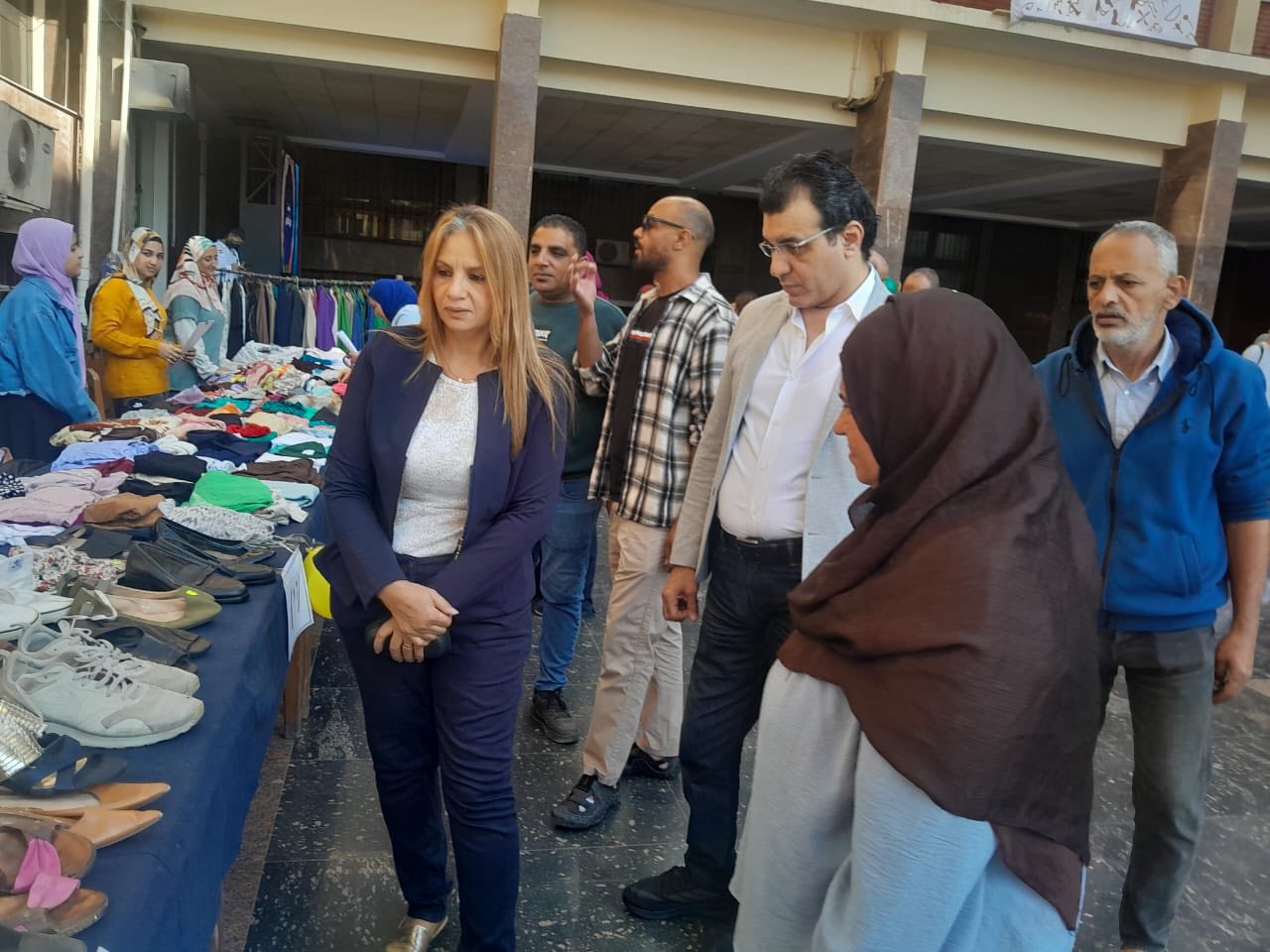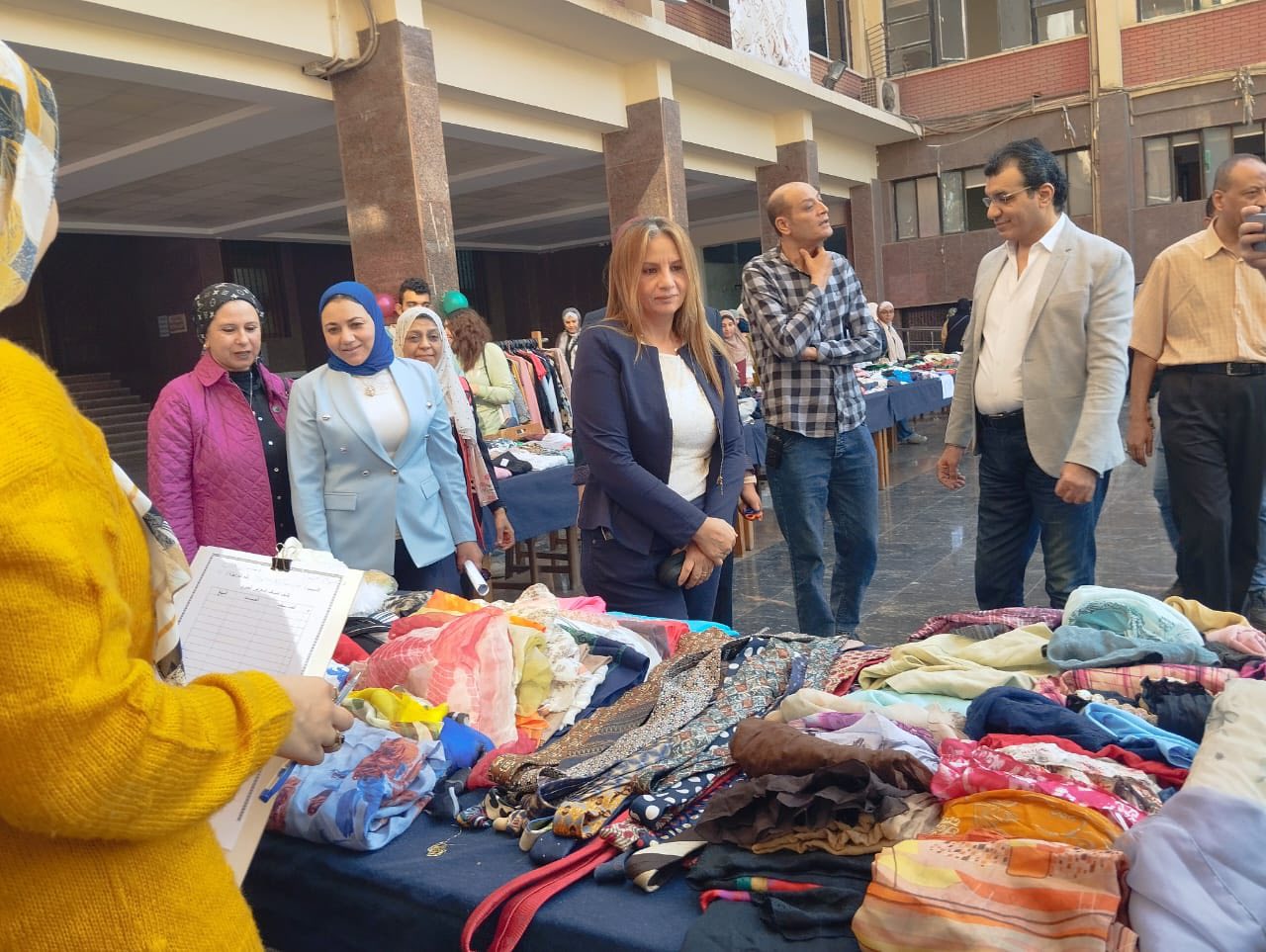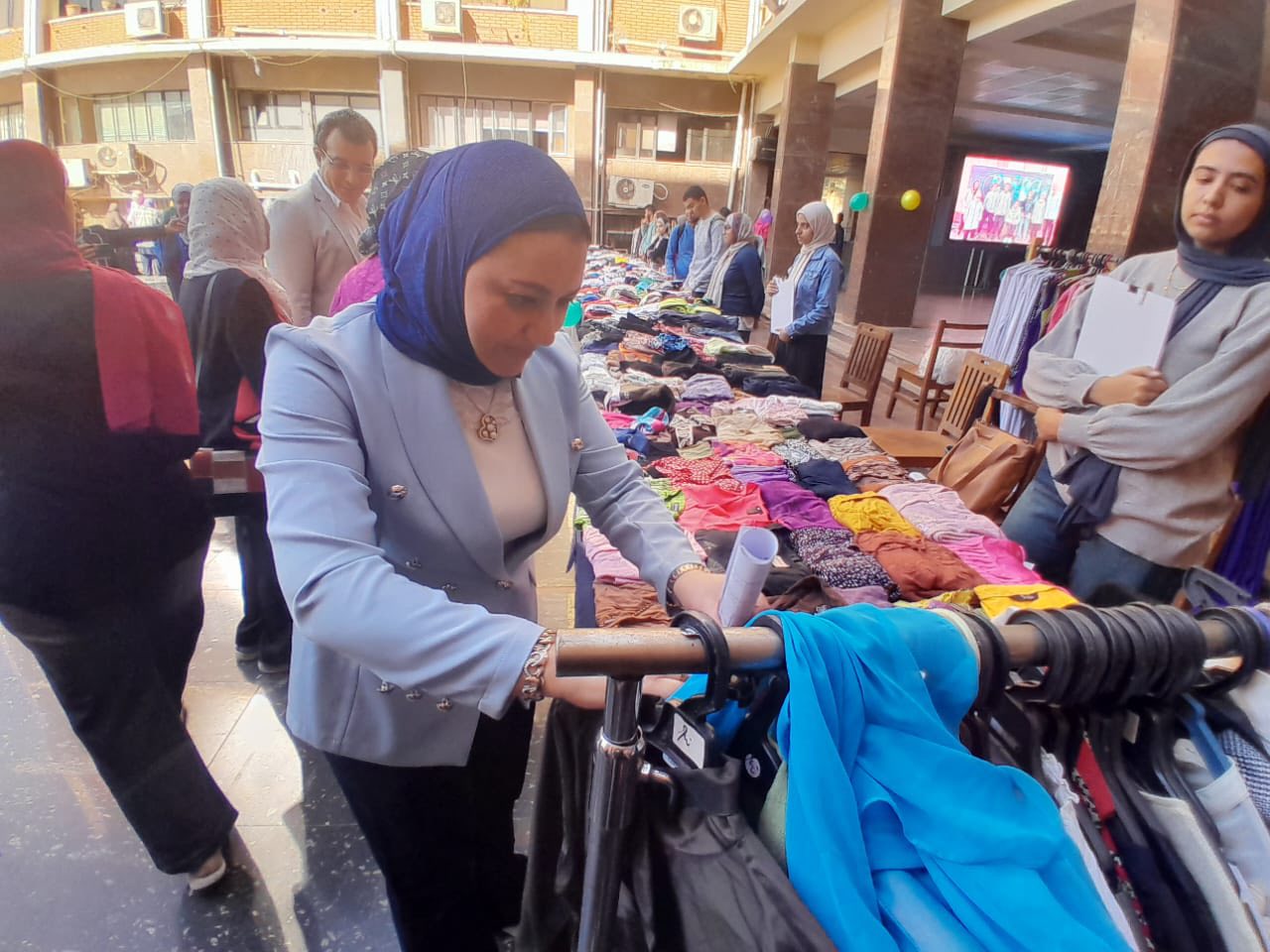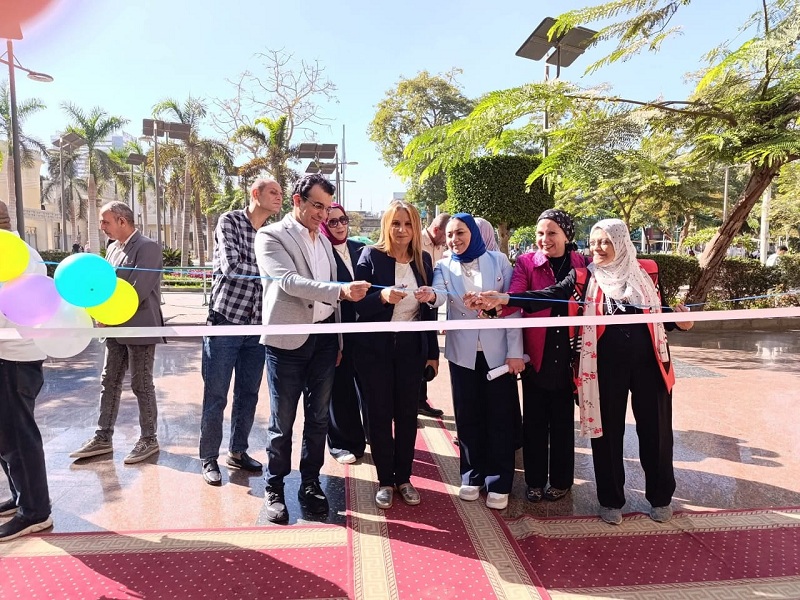The Faculty of Arts Holds the Annual Family Essentials Fair
Prof. Hanan Kamel, Dean of the Faculty of Arts at Ain Shams University, inaugurated the activities of the annual charitable Family Essentials Fair, held on the faculty campus and organized by the Community Service and Environmental Development Sector.
 |
 |
 |
||
The fair was held under the patronage of Prof. Mohamed Diaa Zain El Abideen, President of the University, Prof. Ghada Farouk, Vice President for Community Service and Environmental Development, and Prof. Hanan Kamel Metwally, Dean of the Faculty of Arts, under the supervision of Prof. Hanan Salem, Vice Dean for Community Service and Environmental Development, and in the presence of Prof. Hatem Rabie, Vice Dean for Graduate Studies and Research.
During her tour of the fair, Prof. Hanan Kamel emphasized that the college views this event not merely as a service activity, but as a true reflection of the faculty’s philosophy of humanitarian and community work, which it places among its top priorities. She added that organizing the fair annually responds to the needs of students and staff and reflects the faculty’s commitment to its role within the university community. She highlighted that the university is not only a place of knowledge and learning, but also a space for solidarity and shared responsibility. This fair reinforces the deep value that community work, when linked to educational institutions, transforms from a temporary initiative into a lasting culture that fosters responsible social awareness.
Prof. Hanan Kamel also expressed her gratitude to the exhibitors, student volunteers, supporting organizations, and especially to Dr. Nevine Talba and Dr. Amani Abdel Rahim from the Department of Tourism Guidance, who were responsible for establishing and organizing the fair, noting that the success of the event depends on collective effort. She stressed that such initiatives enhance belonging and strengthen the bonds among all members of the faculty.
Prof. Hanan Salem, Vice Dean for Community Service, explained that this year’s fair features a wide and diverse range of clothing, shoes, bags, accessories, and winter essentials, all offered at symbolic prices to ease the financial burden on the university community. She also pointed out that among the participants there are young people with special needs, reflecting the faculty’s commitment to supporting, integrating, and empowering them both economically and socially.
The fair witnessed significant attendance, confirming the success of the experience and the faculty’s commitment to maintaining it as an annual service-oriented activity.


.svg)

